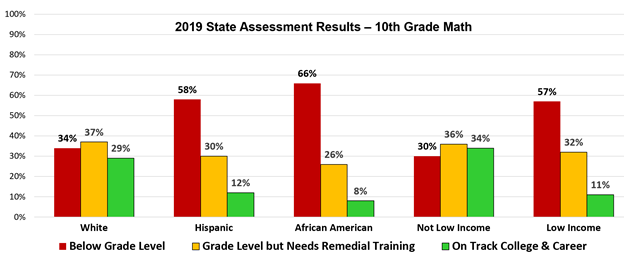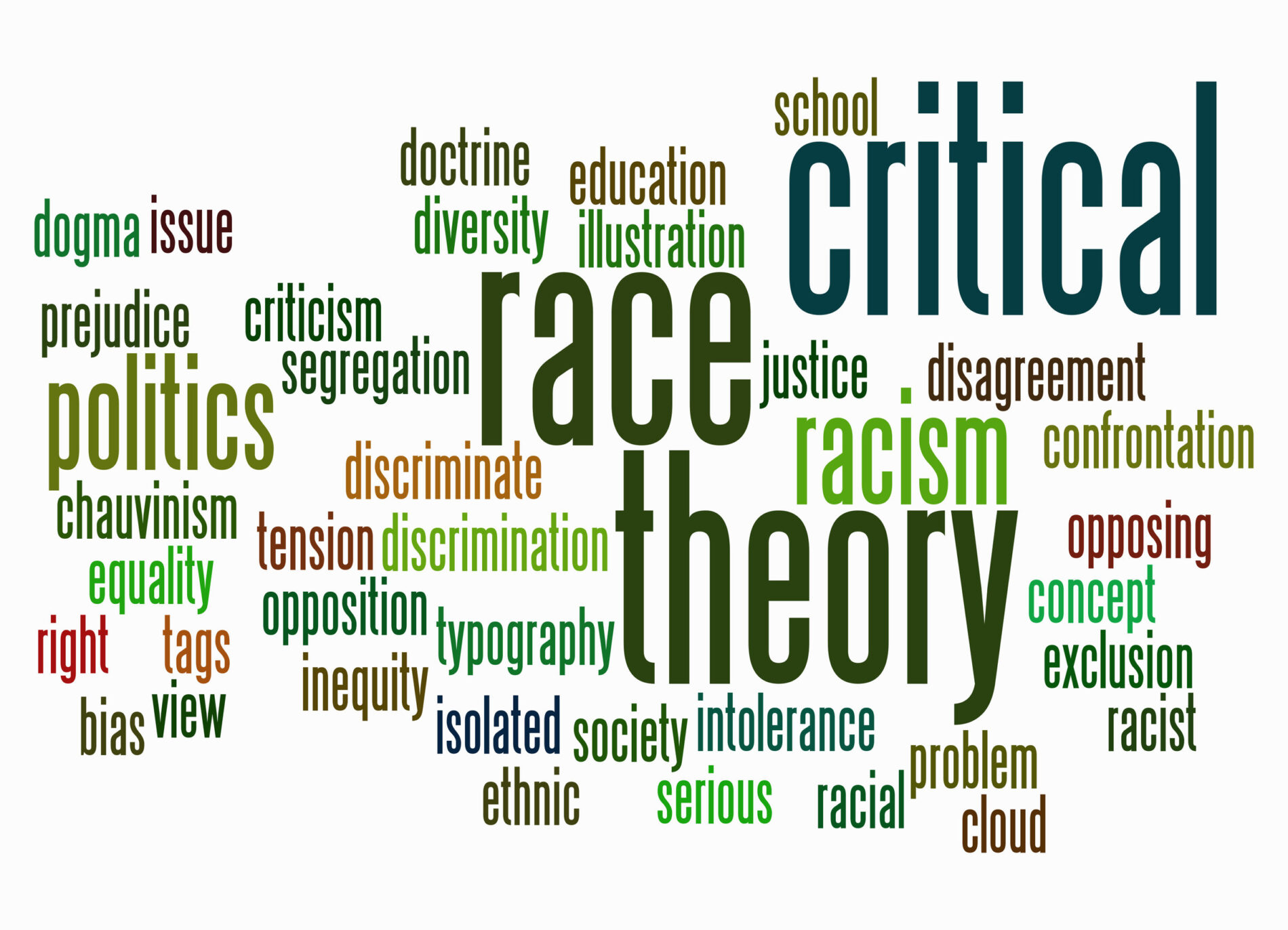A retired teacher from USD 501 Topeka says the tenets of critical race theory were pushed on teachers by district administrators a few years ago in professional development sessions. The teacher wishes to remain anonymous for fear of retaliation, so this story refers to him as Charlie.
One example Charlie cites is a book teachers were asked to read, called Courageous Conversations About Race – A Field Guide for Achieving Equity in Schools by Glenn Singleton and Curtis Linton. The authors say, “It is our belief that the most devastating factor contributing to the lower achievement of students of color is institutionalized racism, which we recognize as the unexamined and unchallenged system of racial biases and residual White advantage that persist in our institutions of learning”
Charlie says no one offered any documentation of institutionalized racism in USD 501; it was just presented as fact. A lot of teachers privately said they were offended by the allegation that they were racist but didn’t speak up because they live in constant fear of retaliation if they question anything.
Teachers wondered, ‘if racist teachers are the reason that students of color have low achievement, how do you explain low achievement for White students in the same class.’ But they didn’t ask the question because they knew that that courageous conversation would not be permitted.
The authors create straw-man arguments throughout the book, which Charlie and other teachers say amounts to accusing people of being racist for thinking that low achievement can be related to anything other than racism. To say some kids, regardless of skin color, need to work harder is called racist because, according to the authors, it is telling Black students to “act White.” They say that working harder is code for White-associated terms like “traditional values” and “work ethic,” so Whites cannot say anyone should work harder because everyone knows they are really only talking about Blacks when they say it.
The authors and school administrators pushing these critical race theory claims basically attribute everything White people do and say to be racially motivated.
School administrators perpetuate educational discrimination
Some students of color are victims of discrimination in Kansas schools, as are some White students. Students of color are more likely to be victims than White students, but race is not the driving factor. The basis for discrimination achievement-based educational discrimination.
Enormous achievement gaps have existed for decades, and most education officials say achievement gaps are more related to income level than race. The 2019 state assessment test administered by the Kansas Department of Education shows low-income high school students are twice as likely to be below grade level in math than their more affluent classmates, who are three times as likely to be on track for college and career.

Since the Montoy court ruling in 2005, the Legislature has provided about $5 billion more to close those achievement gaps, but a 2019 Legislative Post Audit found most of that funding they reviewed “was used for teachers and programs for all students and did not appear to specifically address at-risk students as required by state law.”
That’s just one way the adults in administration choose to perpetuate educational discrimination. Charlie tells a story that shows how the adults put their own interests ahead of students.
“We had a meeting regarding our reading scores. We specifically looked at those performing at less than proficient levels. One teacher said that she had been using a method with some of these kids that was working very well. The problem was that it involved a few students in one class, a few in another, and a few more in other classes. She requested they all – about 28 in total – be put into one class so that she could use the strategies with them. The principal told her to make a list of who would be included, and the list was predominately minority students. The request was denied because, as a politically correct district, the principal said we couldn’t have a remedial-type classroom that was made up of predominantly minority students. We sacrificed those kids for the sake of political correctness; we sent them on to high school without the advantage of being able to read.”
As is often the case, students were sacrificed so the administrators didn’t look bad.
Charlie says this incident occurred more than 20 years ago, which demonstrates that educational discrimination is ingrained in the public education system. A principal delivered the discriminatory message in Charlie’s example but, like teachers who live in fear, middle management may feel they must follow direction from the very top to keep their jobs.
About a year ago at an Overland Park Chamber of Commerce meeting, this reporter said the state assessment data indicates that school districts across Kansas and in Johnson County were giving diplomas to students that they knew to be below grade level. The superintendents of Shawnee Mission and Olathe were in the room but they said nothing in response. Like other superintendents and school board members, they know that addressing educational discrimination would upset the system, and protecting the institution is a higher priority than academically preparing students for college and career.
Teachers find critical race theory indoctrination insulting
The authors say Courageous Conversations is organized to help teachers “focus on race in lieu of traditional topics – such as poverty, language, and learning disabilities – that have long occupied educators’ attention.”
Charlie and other teachers found it insulting that an administrator would tell them to ignore proven education barriers to focus on race. They were also given a fabricated definition of passion – “the level of connectedness educators bring to the anti-racism work and to district, school, or classroom equity transformation” – which was also denigrating to teachers.
“If I don’t support the cause as stated, then I am not passionate? I beg to differ. I am passionate about all kids learning and passionate about an honest discussion of that issue. I am passionate that we don’t approach it in a way that feeds the mentality of victimhood and divisiveness. I am passionate that we don’t sacrifice students for the sake of political correctness.”
The indoctrination didn’t allow for honest conversations in the Topeka school district.
“We did the book a chapter at a time during our plan period collaboration groups and then with the full staff at our in-services. In the smaller plan period groups, people would speak up more with concerns about the concepts being pushed but didn’t speak up often in full staff in-services.”
USD 501 is not the only district pushing critical race theory. Evidence has also been found in Olathe, Blue Valley, and Shawnee Mission (so far).
The Sentinel asked Topeka Superintendent Tiffany Anderson if the district still uses training materials of this nature, and whether the district believes institutional racism in the Topeka district is the primary reason for persistently low achievement of students of color.
Anderson did not acknowledge our questions. Dr. Aarion Gray, Director of Instructional Services, sent a several-paragraph word salad about the district’s commitment to delivering the “highest quality learning” but he would not answer either question.




